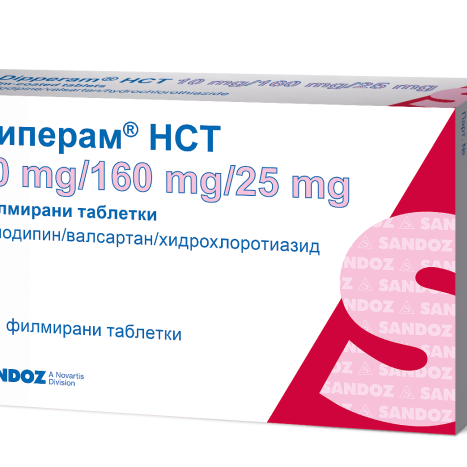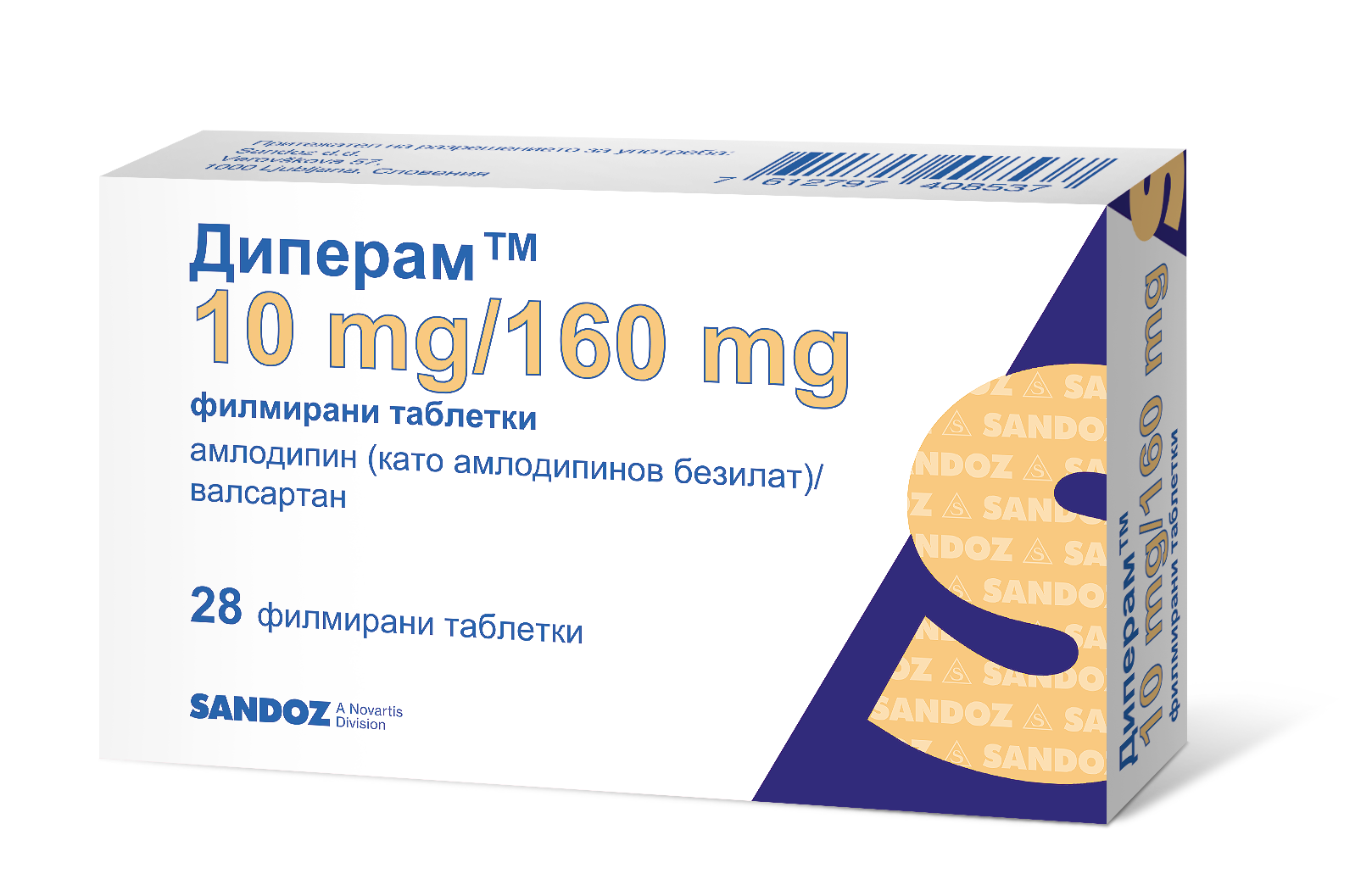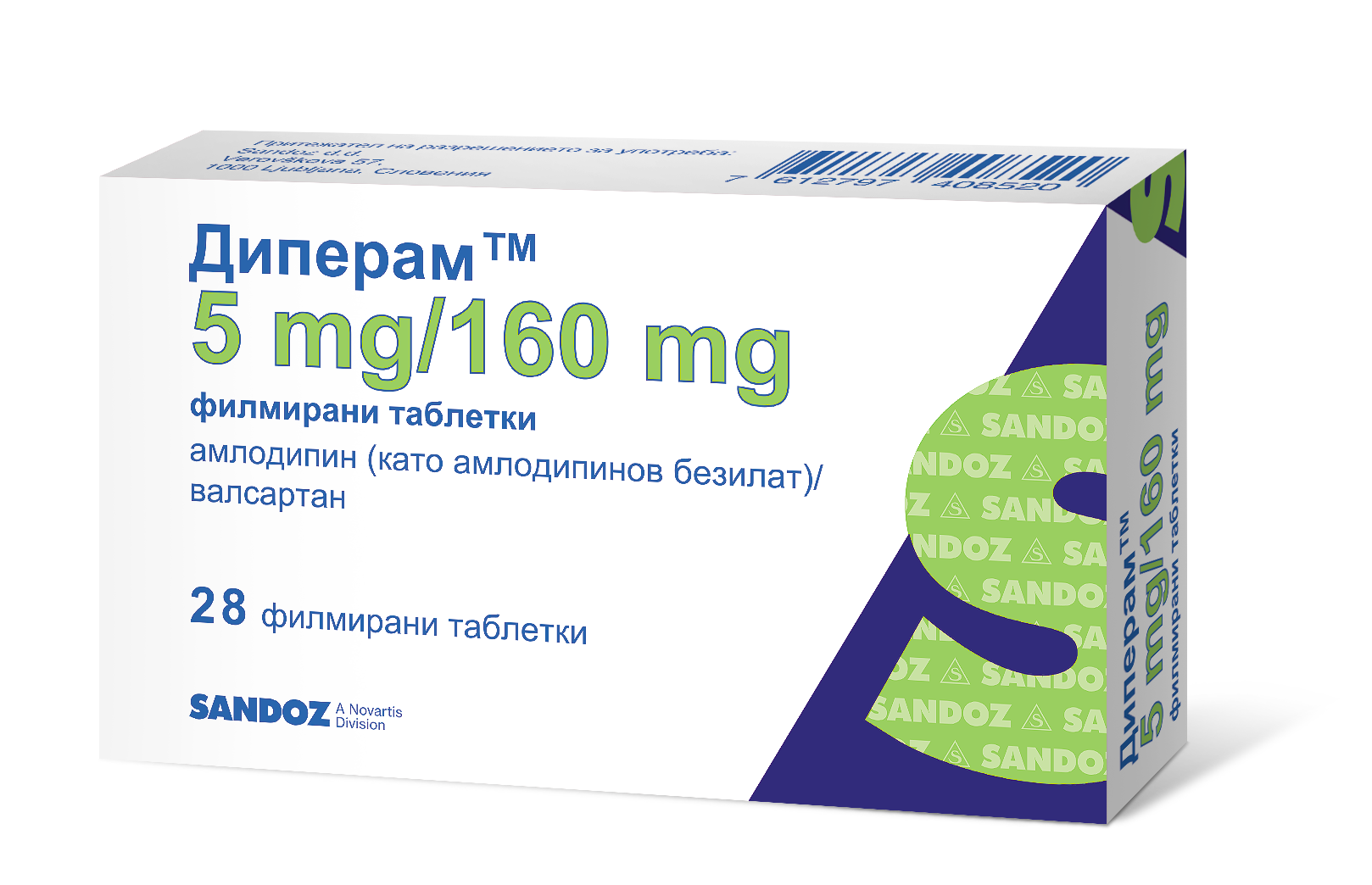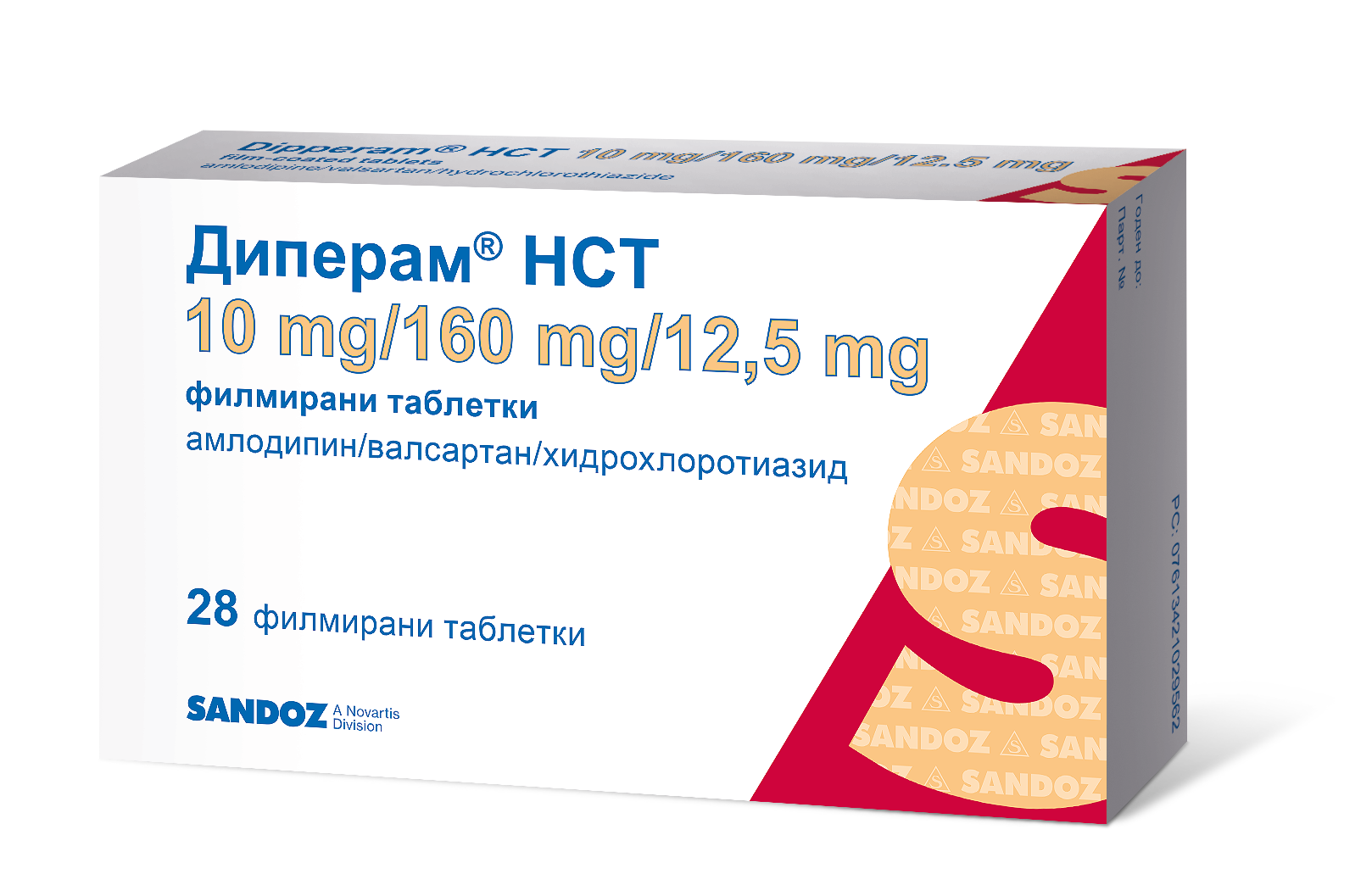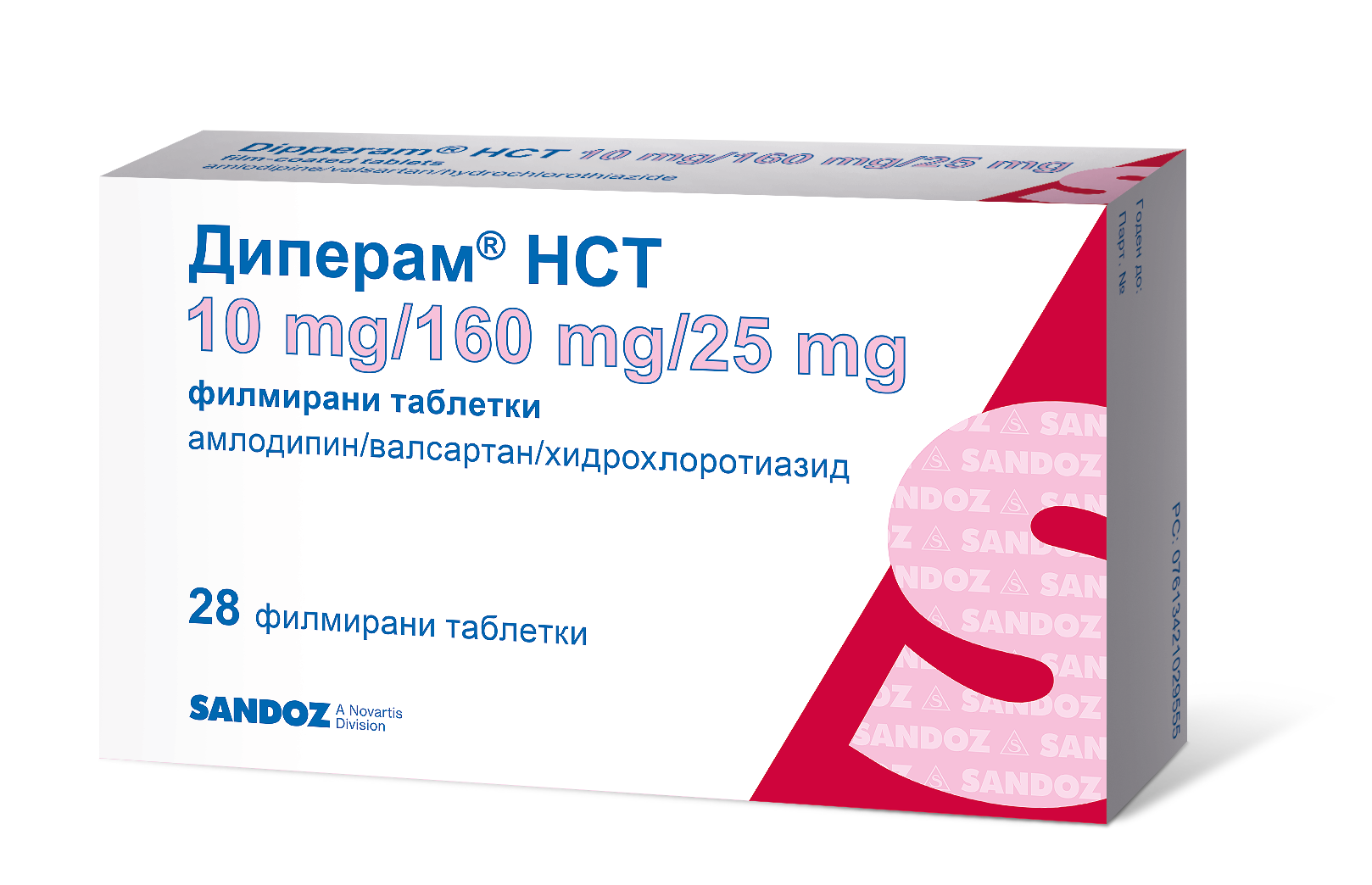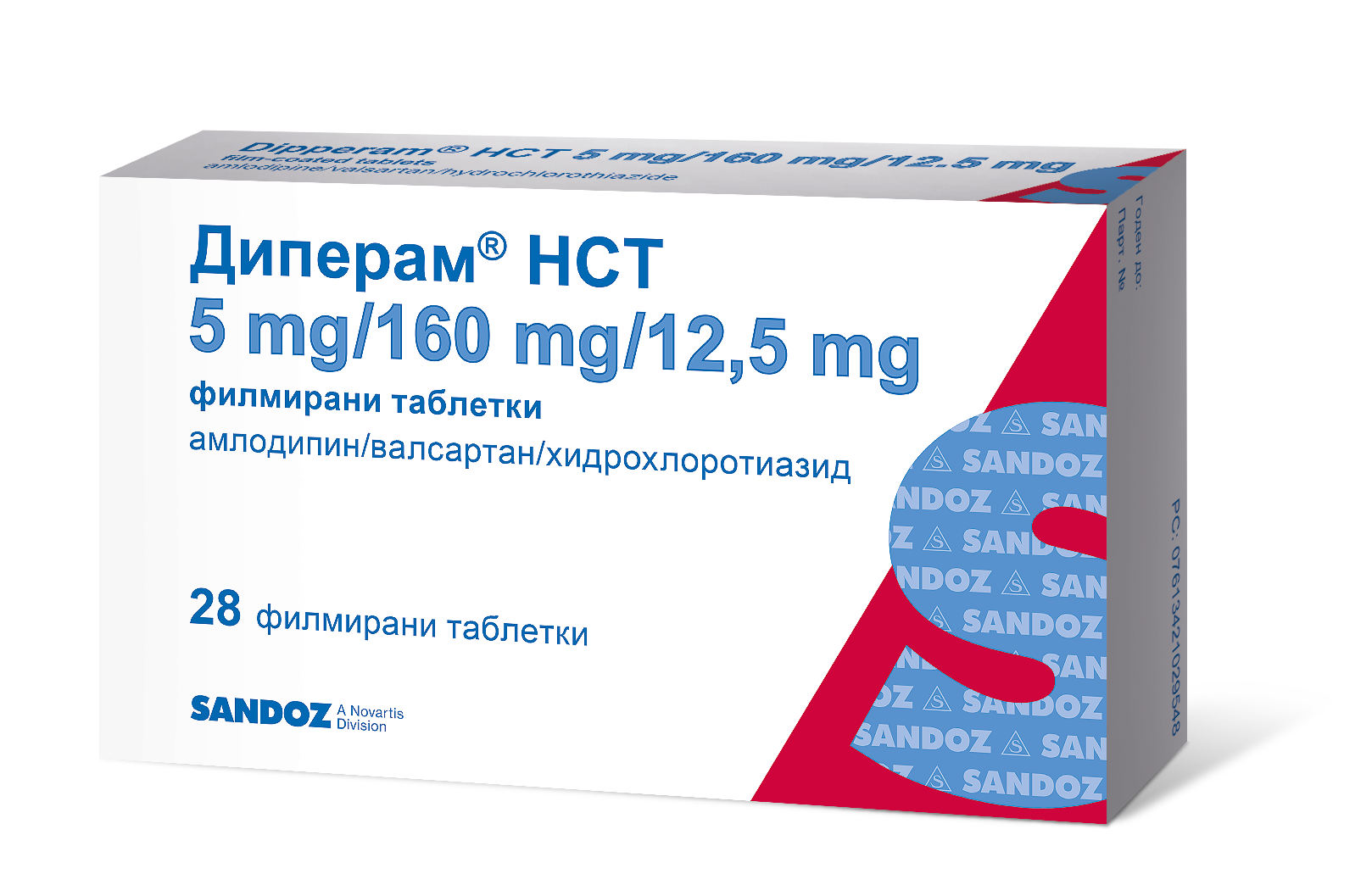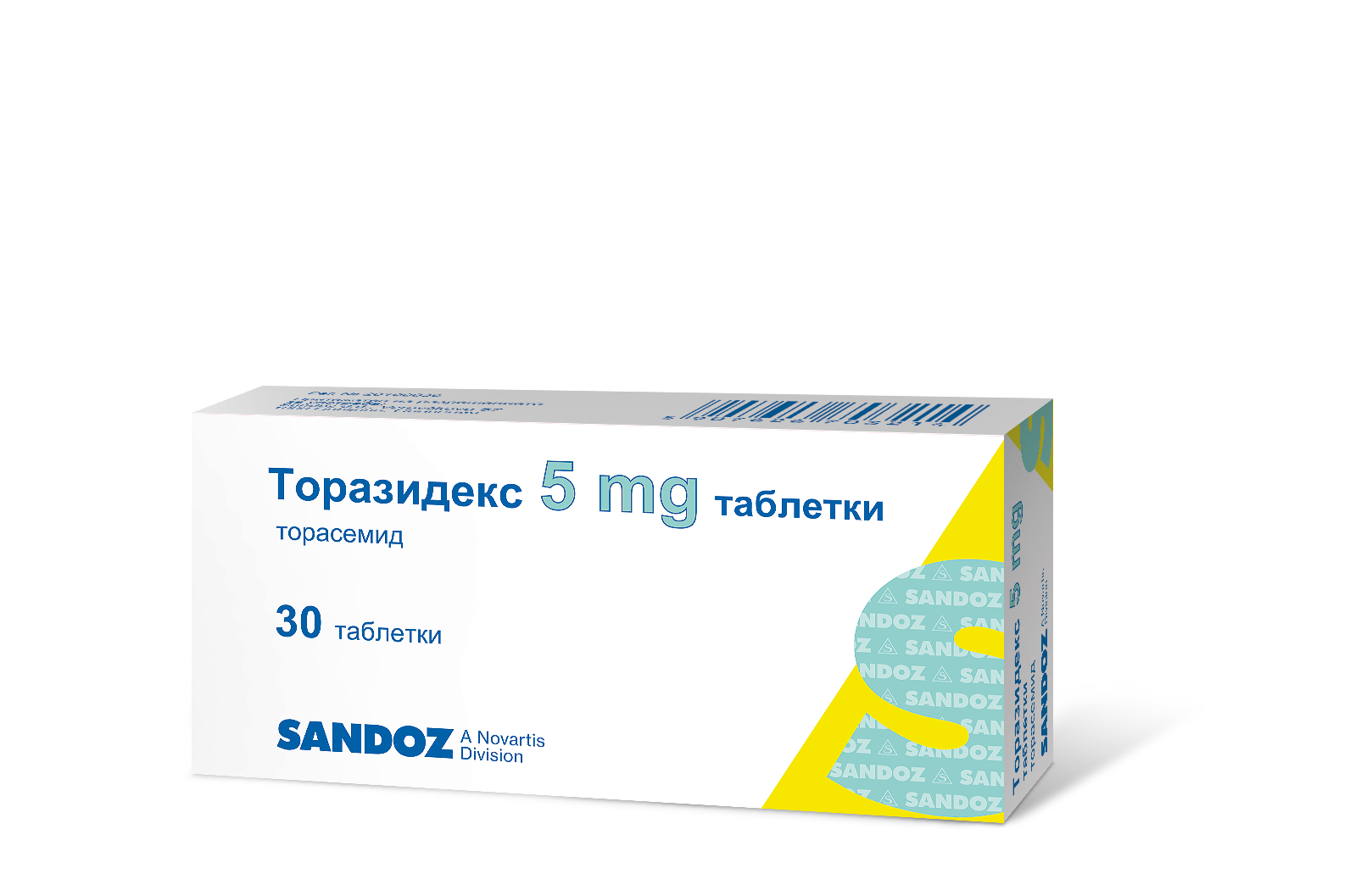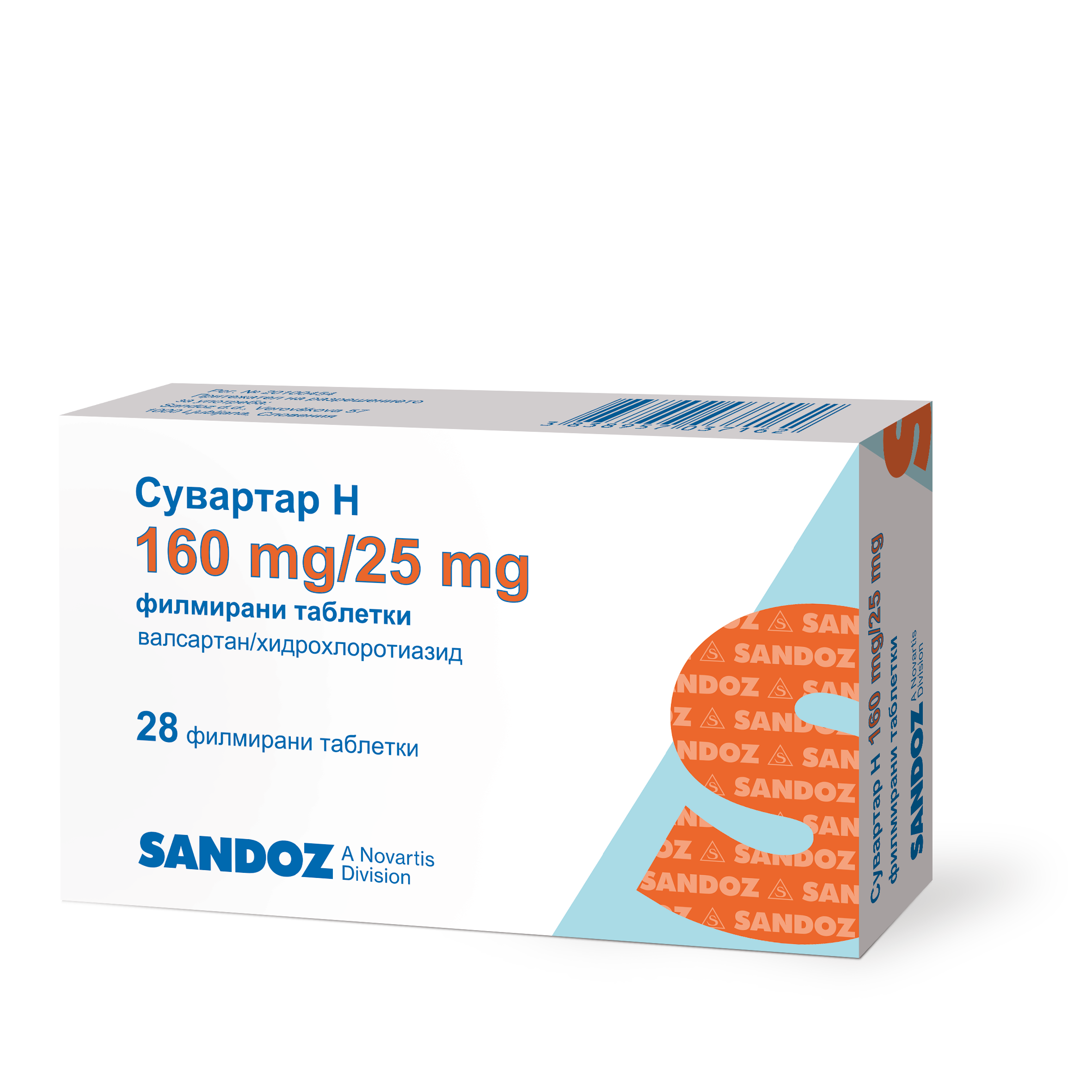DIPPERAM HCT 10mg/160mg/25mg x 28 tabl
Leaflet: user information
Diperam HCT 5 mg/160 mg/12.5 mg film-coated tablets
Diperam HCT 10 mg/160 mg/12.5 mg film-coated tablets
Diperam HCT 10 mg/160 mg/25 mg film-coated tablets
amlodipine/valsartan/hydrochlorothiazide
Dipperam HCT 5 mg/160 mg/12.5 mg film-coated tablets
Dipperam HCT 10 mg/160 mg/12.5 mg film-coated tablets
Dipperam HCT 10 mg /160 mg/25 mg film-coated tablets
amlodipine/valsartan/hydrochlorothiazide
Read all of this leaflet carefully before you start taking this medicine because it contains important information for you.
- Keep this leaflet. You may need to read it again.
- If you have any further questions, ask your doctor or pharmacist.
- This medicine has been prescribed for you personally. Don't leave it to other people. It can harm them even though the signs of their illness are the same as yours.
If you get any side effects, tell your doctor or pharmacist. This also includes any possible side effects not described in this leaflet. See point 4.
What this leaflet contains
1. What Diperam HCT is and what it is used for
2. What you need to know before you take Diperam HCT
3. How to take Diperam HCT
4. Possible side effects
5. How to store Diperam HCT
6. Contents of the package and additional information
1. What Diperam HCT is and what it is used for
Diperam HCT tablets contain three substances called amlodipine, valsartan and hydrochlorothiazide. All three substances help control high blood pressure.
- Amlodipine belongs to a group of substances called "calcium antagonists". Amlodipine stops the passage of calcium into the blood vessel wall, which prevents blood vessels from constricting.
- Valsartan belongs to a group of substances called "angiotensin-II receptor blockers". Angiotensin II is produced by the body and causes blood vessels to constrict, thereby increasing blood pressure. Valsartan works by blocking the effect of angiotensin II.
- Hydrochlorothiazide belongs to a group of substances called "thiazide diuretics". Hydrochlorothiazide increases the volume of urine output, which also decreases blood clotting.
As a result of the action of the three mechanisms, blood vessels relax and blood pressure decreases.
Diperam HCT is used to treat high blood pressure in adult patients whose blood pressure is well controlled by taking amlodipine, valsartan and hydrochlorothiazide and who would benefit from taking one tablet containing all three substances.
2. What you need to know before you take Diperam HCT
Do not take Diperam HCT
- if you are more than 3 months pregnant. (It is also recommended to avoid the use of Diperam HCT in early pregnancy - see section "Pregnancy".)
- if you are allergic to amlodipine or other calcium antagonists, valsartan, hydrochlorothiazide, sulphonamide derivatives (medicines used to treat chest or urinary infections) or any of the other ingredients of this medicine (listed in section 6).
If you think you may be allergic, do not take Diperam HCT and consult your doctor.
- if you have liver disease, destruction of the small bile ducts in the liver (biliary cirrhosis) leading to a build-up of bile in the liver (cholestasis).
- if you have severe kidney problems or if you are on dialysis treatment.
- if you cannot pass urine (anuria).
- if you have very low levels of potassium or sodium in your blood, despite treatment to increase your blood potassium or sodium levels.
- if you have too high blood calcium levels despite treatment to lower blood calcium levels.
- if you have gout (uric acid crystals in the joints).
- if you have very low blood pressure (hypotension).
- if you have a narrowing of the aortic valve (aortic stenosis) or cardiogenic shock (a condition where the heart is unable to supply enough blood to the body).
- if you have heart failure after a heart attack.
- if you have diabetes or impaired kidney function and are being treated with a blood pressure lowering medicine containing aliskiren.
If any of the above applies to you, do not take Diperam HCT and consult your doctor .
Warnings and precautions
Talk to your doctor or pharmacist before taking Diperam HCT
- if you have low levels of potassium or magnesium in your blood (with or without symptoms such as muscle weakness, muscle spasms, irregular heart rhythm).
- if you have low levels of sodium in your blood (with or without symptoms such as tiredness, confusion, muscle twitching, convulsions).
- if you have high levels of calcium in your blood (with or without symptoms such as nausea, vomiting, constipation, stomach pain, frequent urination, thirst, muscle weakness and tremors).
- if you have kidney problems, have had a kidney transplant or have been told you have narrowing of the renal arteries.
- if you have liver problems.
- if you have or have had heart failure or coronary artery disease, especially if you have been prescribed the maximum dose of amlodipine/valsartan/hydrochlorothiazide
(10 mg/320 mg/25 mg).
- if you have had a heart attack. Follow your doctor's instructions carefully for the starting dose. Your doctor may also test your kidney function.
- if your doctor has told you that you have a narrowing of the heart valve (called "aortic or mitral stenosis") or that the thickness of the heart muscle is increased above normal (called "obstructive hypertrophic cardiomyopathy").
- if you have aldosteronism. This is a condition in which the adrenal glands produce too much of the hormone aldosterone. If this applies to you, the use of Diperam HCT is not recommended.
- if you have a disease called systemic lupus erythematosus (also called "lupus" or "SLE").
- if you have diabetes (high blood sugar levels).
- if you have high levels of cholesterol or triglycerides in your blood.
- if you have skin reactions such as a rash after sun exposure.
- if you have had allergic reactions to other medicines to treat high blood pressure or diuretics (a type of medicine also known as 'water tablets'), especially if you have asthma or allergies
- if you are sick (vomiting or diarrhoea).
- if you have had swelling, especially of the face or throat, while taking other medicines (including angiotensin-converting enzyme inhibitors). If you experience such symptoms, stop taking Diperam HCT and contact your doctor immediately. You should never take Diperam HCT again.
- if you feel dizzy and/or faint during treatment with Diperam HCT, tell your doctor as soon as possible.
- if you have decreased vision or pain in the eye. These may be symptoms of increased pressure in the eye and may occur within hours to a week of starting Diperam HCT. This can lead to permanent visual impairment if left untreated.
- if you are taking any of the following medicines used to treat high blood pressure:
- ACE inhibitor (eg enalapril, lisinopril, ramipril), especially if you have kidney problems related to diabetes.
- aliskiren.
- if you have had skin cancer or if you develop an unexpected skin lesion during treatment. Treatment with hydrochlorothiazide, especially long-term use of high doses, may increase the risk of certain types of skin and lip cancer (non-melanoma skin cancer). Protect your skin from sun and UV rays while taking Diperam HCT.
Your doctor may periodically check your kidney function, blood pressure and the amount of electrolytes (eg potassium) in your blood.
See also the information under the heading “Do not take Diperam HCT”.
If any of the above applies to you, consult your doctor.
Children and adolescents
Diperam HCT is not recommended for use in children and adolescents under 18 years of age.
Elderly (aged 65 and over)
Diperam HCT can be used in patients aged 65 years and over at the same doses as other adults and in the same way as the three substances called amlodipine, valsartan and hydrochlorothiazide have been taken so far. Elderly patients, especially those taking the maximum dose of amlodipine/valsartan/hydrochlorothiazide
(10 mg/320 mg/25 mg), should monitor their blood pressure regularly.
Other medicines and Diperam HCT
Tell your doctor or pharmacist if you are taking, have recently taken or might take any other medicines. Your doctor may need to change your dose and/or take other precautions. In some cases, you may need to stop taking one of the medicines. This is especially important if you are taking any of the medicines listed below:
Do not take at the same time as:
• lithium (a medicine used to treat some types of depression);
• medicines or substances that increase the level of potassium in the blood. These include potassium supplements or salt substitutes containing potassium, potassium-sparing drugs, and heparin;
• ACE inhibitors or aliskiren (see also the information entitled “Do not take Diperam HCT” and “Warnings and precautions”).
Take with caution with:
• alcohol, sleeping pills and anesthetics (medicines that allow patients to undergo surgical operations and other manipulations);
• amantadine (a medicine to treat Parkinson's disease and also to treat and prevent certain diseases caused by viruses);
• anticholinergics (medicines used to treat a number of conditions such as gastrointestinal spasms, bladder spasms, asthma, seasickness, muscle spasms, Parkinson's disease and as part of anesthetic drugs);
• anticonvulsants and mood stabilizers, medicines used to treat epilepsy and bipolar disorders (eg carbamazepine, phenobarbital, phenytoin, fosphenytoin, primidone);
• cholestyramine, colestipol or other resins (substances used primarily to treat elevated blood lipid levels);
• simvastatin (a medicine used to control high cholesterol);
• cyclosporine (a medicine used in transplantation to prevent rejection of a transplanted organ or in certain other diseases, eg rheumatoid arthritis or atopic dermatitis);
• cytotoxic medicines (used to treat cancer) such as methotrexate or cyclophosphamide;
• digoxin or other digitalis glycosides (medicines used to treat heart problems);
• verapamil, diltiazem (heart medicines);
• iodine contrast substances (means used in imaging studies);
• medicines to treat diabetes (oral agents such as metformin or insulin);
• medicines to treat gout, such as allopurinol;
• medicines that can increase the blood sugar level (beta blockers, diazoxide);
• medicines that can induce torsades de pointes (irregular heart rhythm), such as antiarrhythmics (medicines used to treat heart problems) and some antipsychotics;
• drugs that can reduce the amount of sodium in the blood, such as antidepressants, antipsychotics, antiepileptic drugs;
• medicines that can reduce the amount of potassium in the blood, such as diuretics (water tablets), corticosteroids, laxatives, amphotericin or penicillin G;
• medicines to increase blood pressure, such as adrenaline or noradrenaline;
• medicines used to treat HIV/AIDS (eg ritonavir, indinavir, nelfinavir);
• medicines used to treat fungal infections (eg ketoconazole, itraconazole);
• medicines used to treat ulcers and inflammation of the esophagus (carbenoxolone);
• medicines to relieve pain and inflammation, especially non-steroidal anti-inflammatory drugs (NSAIDs), including selective cyclooxygenase 2 inhibitors (Cox-2 inhibitors);
• muscle relaxants (medicines used to relax muscles used during surgery);
• nitroglycerin and other nitrates or other substances called "vasodilators";
• other medicines to treat high blood pressure, including methyldopa;
• rifampicin (used for example to treat tuberculosis), erythromycin, clarithromycin (antibiotics);
• St. John's Wort;
• dantrolene (infusion for severe deviations in body temperature);
• vitamin D and calcium salts.
Diperam HCT with food, drink and alcohol
People prescribed Diperam HCT should not consume grapefruit or grapefruit juice. The reason for this is that grapefruit and grapefruit juice can lead to an increase in plasma levels of the active substance amlodipine, which in turn can lead to an unpredictable enhancement of the antihypertensive effect of Diperam HCT. Talk to your doctor before drinking alcohol. Alcohol can cause your blood pressure to drop sharply and/or make you more likely to feel dizzy or faint.
Pregnancy and breastfeeding
Pregnancy
You should tell your doctor if you think you are pregnant ( or may become pregnant ). As a rule, your doctor will advise you to stop taking Diperam HCT before you become pregnant or as soon as you know you are pregnant and will advise you to take another medicine instead of Diperam HCT. Diperam HCT is not recommended in early pregnancy and should not be taken if you are more than 3 months pregnant, as it may cause serious harm to your baby if used after the third month of pregnancy.
Breastfeeding
Inform your doctor if you are breast-feeding or intend to breast-feed . Treatment with Diperam HCT is not recommended for mothers who are breast-feeding and your doctor may prescribe another treatment if you wish to breast-feed, especially if your baby is newborn or born prematurely.
Ask your doctor or pharmacist before using any medicine.
Driving and using machines
This medicine may make you feel dizzy, drowsy, nauseous or have a headache. If you experience these symptoms, do not drive or operate machinery.
3. How to take Diperam HCT
Always take this medicine exactly as your doctor has told you. If you are not sure about something, ask your doctor. This will help you achieve the best results and reduce the risk of side effects.
The usual dose of Diperam HCT is one tablet daily.
- It is best to take the tablets at the same time each day. It's best in the morning.
- Swallow the tablet whole with a glass of water.
- You can take Diperam HCT with or without food. Do not take Diperam HCT with grapefruit or grapefruit juice.
Depending on how you respond to treatment, your doctor may suggest increasing or decreasing the dose.
Do not exceed the prescribed dose.
If you have taken more Diperam HCT than you should
If you accidentally take too many Diperam HCT tablets, contact your doctor immediately. You may need medical attention.
If you forget to take Diperam HCT
If you miss a dose of the medicine, take it as soon as you remember, then take the next dose at the usual time. If it is almost time for the next dose, just take the next tablet at the usual time. Do not take a double dose (two tablets at once) to make up for a missed tablet.
If you stop taking Diperam HCT
Stopping treatment with Diperam HCT may cause your disease to get worse. Do not stop taking your medicine until your doctor tells you to.
Always take the medicine even if you feel well
People who have high blood pressure often do not notice any signs of the problem. Many feel normal. It is very important to take this medicine exactly as your doctor has told you to get the best results and to reduce the risk of side effects. Keep your doctor's appointments even if you feel well.
If you have any further questions related to the use of this medicine, ask your doctor or pharmacist.
4. Possible unwanted drugs
Like all medicines, this medicine can cause side effects, although not everybody gets them.
As with any combination containing three active substances, side effects associated with each of the individual ingredients cannot rule it out. Side effects reported with Diperam HCT or any of its three active substances (amlodipine, valsartan and hydrochlorothiazide) are listed below and may occur with the use of Diperam HCT.
Some side effects can be serious and require immediate medical attention.
Consult a doctor immediately if you experience any of the following serious side effects after taking this medicine:
Common (may affect up to 1 in 10 people):
- dizziness
- low blood pressure (feeling sick, fainting, sudden loss of consciousness)
Uncommon (may affect up to 1 in 100 people):
- severe decrease in the amount of urine excreted (reduced kidney function)
Rare (may affect up to 1 in 1,000 people):
- spontaneous bleeding
- irregular heart rhythm
- liver disorder
Very rare (may affect up to 1 in 10,000 people):
- sudden wheezing, chest pain, shortness of breath or difficulty breathing
- swelling of the eyelids, face or lips
- swelling of the tongue and throat, which makes breathing very difficult
- severe skin reactions, including severe skin rash, hives, reddening of the skin all over the body, severe itching, blistering, peeling and swelling of the skin, inflammation of the mucous membranes (Stevens-Johnson syndrome, toxic epidermal necrolysis) or other allergic reactions
- heart attack
- an inflamed pancreas that can cause severe abdominal pain and back pain accompanied by severe malaise
- weakness, bruising, high fever and frequent infections
- stiffness
Other side effects may include:
Very common (may affect more than 1 in 10 people):
- low levels of potassium in the blood
- increase in blood lipids
Common (may affect up to 1 in 10 people):
- drowsiness
- heartbeat (awareness of your heartbeat)
- redness
- ankle swelling (edema)
- stomach ache
- stomach discomfort after eating
- fatigue
- headache
- frequent urination
- high levels of uric acid in the blood
- low levels of magnesium in the blood
- low blood sodium levels
- dizziness, fainting when standing up
- decreased appetite
- nausea and vomiting
- itchy rash and other types of rash
- inability to achieve or maintain an erection
Uncommon (may affect up to 1 in 100 people):
- fast heart rate
- feeling dizzy
- visual impairment
- stomach discomfort
- chest pain
- increase in blood urea, creatinine and uric acid
- high levels of calcium, fat or sodium in the blood
- lowering of potassium in the blood
- bad breath
- diarrhea
- dry mouth
- weight gain
- loss of appetite
- disturbances in taste sensations
- back pain
- swelling of the joints
- muscle cramps/weakness/pain
- pain in the limbs
- disturbances in standing or walking
- weakness
- coordination disorders
- dizziness when standing up or after exercise
- lack of energy
- sleep disorders
- tingling or numbness
- neuropathy
- sudden, brief loss of consciousness
- drop in blood pressure when standing up
- cough
- out of breath
- throat irritation
- excessive sweating
- itching
- swelling, redness and pain in the course of a vein
- redness of the skin
- tremor
- mood swings
- anxiety
- depression
- insomnia
- changes in taste
- diminution
- loss of pain sensation
- visual disturbances
- visual impairment
- ringing in the ears
- sneezing/runny nose caused by inflammation of the lining of the nose (rhinitis)
- change in the rhythm of bowel movements
- indigestion
- hair loss
- itchy skin
- change in skin color
- impaired urination
- frequent urges to urinate at night
- increased frequency of urination
- breast discomfort or enlargement in men
- pain
- general malaise
- weight reduction
Rare (may affect up to 1 in 1,000 people):
- low platelet levels (sometimes with bleeding or bruising of the skin)
- glucose in the urine
- high blood sugar levels
- deterioration of the diabetic metabolic state
- abdominal discomfort
- constipation
- liver disorders, which may occur at the same time as yellowing of the skin and eyes or darkening of the urine (haemolytic anemia)
- increased sensitivity of the skin when exposed to the sun
- purple spots on the skin
- kidney disorders
- confusion
Very rare (may affect up to 1 in 10,000 people):
- decreased number of white blood cells
- a reduced number of platelets in the blood, which may lead to unusual bruising or bleeding easily (red blood cell damage)
- swelling of the gums
- bloating (gastritis)
- inflammation of the liver (hepatitis)
- yellowing of the skin (jaundice)
- increase in liver enzymes, which can affect some laboratory tests
- increased muscle tension
- inflammation of the blood vessels, often accompanied by a skin rash
- sensitivity to light
- disorders including stiffness, tremors and/or movement disorders
- high fever, sore throat or canker sores in the mouth, more frequent infections (absence or very low levels of white blood cells)
- pale skin, tiredness, shortness of breath, dark urine (hemolytic anemia, abnormal breakdown of red blood cells in blood vessels or elsewhere in the body)
- confusion, fatigue, muscle twitching and spasms, rapid breathing (hypochloremic alkalosis)
- severe upper stomach pain (inflammation of the pancreas)
- difficulty breathing with high fever, cough, wheezing, shortness of breath (respiratory distress, pulmonary edema, pneumonitis)
- facial rash, joint pain, muscle disorders, high fever (lupus erythematosus)
- inflammation of blood vessels with symptoms such as rash, purple-red spots, high fever (vasculitis)
- severe skin disease causing rash, reddening of the skin, blistering of the lips, eyes or mouth, peeling of the skin, high fever (toxic epidermal necrolysis)
Not known (frequency cannot be estimated from the available data):
- changes in blood tests to assess kidney function, increase in potassium levels in the blood, decrease in the number of red blood cells
- abnormalities in red blood cell test results
- decreased number of certain types of white blood cells and platelets
- increase in blood creatinine
- deviations in liver function indicators
- a strong decrease in the amount of urine excreted
- inflammation of blood vessels
- weakness, bruising and severe infections (aplastic anemia)
- decreased vision or eye pain due to increased pressure (possible symptoms of acute angle-closure glaucoma)
- out of breath
- severe decrease in the amount of urine excreted (possible signs of kidney disorders or kidney failure)
- serious skin disease causing rash, reddening of the skin, blistering of the lips, eyes or mouth, peeling of the skin, fever (erythema multiforme)
- muscle spasm
- high fever (pyrexia)
- blistering of the skin (sign of a condition called bullous dermatitis)
- skin and lip cancer (non-melanoma skin cancer)
Reporting adverse reactions
If you get any side effects, tell your doctor or pharmacist. This includes all possible side effects not described in this leaflet. You can also report side effects directly through the national reporting system:
Executive Agency for Medicines, 8 Damyan Gruev Street, 1303 Sofia, website: www.bda.bg. By reporting side effects, you can contribute to getting more information about the safety of this medicine.
5. How to store Diperam HCT
Keep out of the reach of children.
Do not use this medicine after the expiry date which is stated on the carton and blister after EXP. The expiration date corresponds to the last day of the specified month.
To be stored below 30°C
Store in original packaging to protect from moisture.
Do not use Diperam HCT packages that are damaged or have signs of tampering.
Do not dispose of medicines down the drain or in the household waste container. Ask your pharmacist how to dispose of medicines you no longer use. These measures will help protect the environment.
6. Contents of the package and additional information
What Diperam HCT contains
Diperam HCT 5 mg/160 mg/12.5 mg film-coated tablets
The active substances in Diperam HCT are amlodipine (as amlodipine besylate), valsartan and hydrochlorothiazide. Each film-coated tablet contains 5 mg of amlodipine (as amlodipine besylate), 160 mg of valsartan and 12.5 mg of hydrochlorothiazide.
The other ingredients are cellulose, microcrystalline; crospovidone (type A); silica, colloidal anhydrous; magnesium stearate; hypromellose (type 2910); macrogol 4000, talc, titanium dioxide (E171).
Diperam HCT 10 mg/160 mg/12 , 5 mg film-coated tablets
The active substances in Diperam HCT are amlodipine (as amlodipine besylate), valsartan and hydrochlorothiazide. Each film-coated tablet contains 10 mg of amlodipine (as amlodipine besylate), 160 mg of valsartan and 12.5 mg of hydrochlorothiazide.
The other ingredients are cellulose, microcrystalline; crospovidone (type A); silica, colloidal anhydrous; magnesium stearate; hypromellose (type 2910); macrogol 4000, talc, titanium dioxide (E171), yellow iron oxide, (E172), red iron oxide (E172).
Diperam HCT 10 mg/160 mg/25 mg film-coated tablets
The active substances in Diperam HCT are amlodipine (as amlodipine besylate), valsartan and hydrochlorothiazide. Each film-coated tablet contains 10 mg of amlodipine (as amlodipine besylate), 160 mg of valsartan and 25 mg of hydrochlorothiazide.
The other ingredients are cellulose, microcrystalline; crospovidone (type A); silicon dioxide, colloidal anhydrous, magnesium stearate, hypromellose (type 2910); macrogol 4000, talc, yellow iron oxide (E172).
What Diperam HCT looks like and contents of the pack
Diperam HCT 5 mg/160 mg/12.5 mg film-coated tablets
Diperam HCT 5 mg/160 mg/12.5 mg film-coated tablets are white, oval tablets with “NVR” on one side and “VCL” on the other.
Length: approximately 15 mm
Width: approximately 5.9mm
Diperam HCT 10 mg/160 mg/12.5 mg film-coated tablets
Diperam HCT 10 mg/160 mg/12.5 mg film-coated tablets are pale yellow, oval tablets with “NVR” on one side and “VDL” on the other.
Length: approximately 15 mm
Width: approximately 5.9mm
Diperam HCT 10 mg/160 mg/25 mg film-coated tablets
Diperam HCT 10 mg/160 mg/25 mg film-coated tablets are brown-yellow, oval tablets with “NVR” on one side and “VHL” on the other.
Length: approximately 15 mm
Width: approximately 5.9mm
Diperam HCT is available in PVC/PVDC-Alu blisters or single-dose blister packs.
Diperam HCT is available in blister packs containing 14, 28, 28x1, 30, 56, 56x1, 60, 90, 98, 98x1, 100 and 280x1 film-coated tablets, in multipacks of 280 tablets (consisting of 4 cartons, each containing 70x1 tablets or 20 cartons, each containing 14 tablets).
Not all packages may be sold in your country.
License holder
Sandoz dd
Verovškova 57
1000 Ljubljana
Slovenia
Manufacturers
Salutas Pharma GmbH
Otto-von-Guericke-Allee 1
39179 Barleben, Saxony-Anhalt
Germany
Novartis Pharma GmbH
Roonstrasse 25
90429 Nürnberg, Bayern
Germany
Novartis Farmacéutica SA
Ronda de Santa Maria, 158
08210 Barberà del Vallès (Barcelona)
Spain
This medicinal product is approved in the EEA member states under the following names:
The Netherlands | Dipperam HCT 5 mg/160 mg/12.5 mg film-coated tablets Dipperam HCT 10 mg/160 mg/12.5 mg film-coated tablets Dipperam HCT 10 mg/160 mg/25 mg film-coated tablets |
Bulgaria | Diperam HCT 5 mg/160 mg/12.5 mg film-coated tablets Diperam HCT 10 mg/160 mg/12.5 mg film-coated tablets Diperam HCT 10 mg/160 mg/25 mg film-coated tablets |
Croatia | Dipperam HCT 5 mg/160 mg/12.5 mg filmom obložene tablets Dipperam HCT 10 mg/160 mg/12.5 mg filmom obložene tablets Dipperam HCT 10 mg/160 mg/25 mg filmom obložene tablets |
Estonia | Dipperam HCT Dipperam HCT Dipperam HCT |
Latvia | Dipperam HCT 5mg/160mg/12.5mg film-coated tablets Dipperam HCT 10mg/160mg/12.5mg film-coated tablets Dipperam HCT 10mg/160mg/25mg film-coated tablets |
Poland | Dipperam HCT Dipperam HCT Dipperam HCT |
Romania | Dipperam HCT 5 mg/ 160 mg/12.5 mg comprimate filmate Dipperam HCT 10 mg/ 160 mg/12.5 mg comprimate filmate Dipperam HCT 10 mg/ 160 mg/25 mg comprimate filmate |
Slovakia | Dipperam HCT 5 mg/160 mg/12.5 mg film-coated tablets Dipperam HCT 5 mg/160 mg/25 mg film-coated tablets Dipperam HCT 10 mg/160 mg/25 mg film-coated tablets |
Date of last revision of the leaflet:
09/2019


